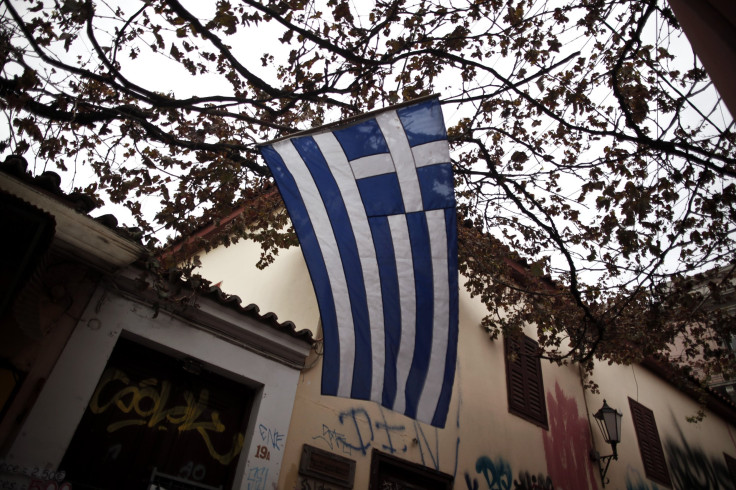Airlift Begins For Hundreds Trapped On Burning Ferry Off Greece

(Reuters) -- Italian and Greek helicopter crews prepared to work through the night to airlift passengers in pairs off a burning ferry adrift in the Adriatic Sea, battling darkness and bad weather that hampered rescue efforts by other ships throughout Sunday. The choppers were plucking passengers off the Italian-flagged Norman Atlantic and transferring them to a nearby vessel, after a dramatic day that began when a fire broke out on its lower deck in the early hours.
A Greek government official said one man had died, but there were no other confirmed reports of casualties among almost 500 passengers and crew. As night fell, Greek authorities said 156 people were clear of the danger zone.
After the ferry drifted in fierce winds into Albanian waters, rescuers were hoping a tugboat could tow the ferry into Albania’s main port of Durres, with another tug helping for part of the journey, said Luan Kore, an official at an Albanian port.
“We are making superhuman efforts in this extremely difficult operation,” Greek coast-guard representative Nikos Lagkadianos said. “Operations by air will continue throughout the night,” he said. Earlier, Lagkadianos said the heavy rain that was hampering the rescue had helped contain the fire, although the ship was still burning.
A Greek defense ministry official said two Italian and two Greek Super Puma helicopters had been deployed, with each air transfer taking around 15 minutes as the pairs of passengers are bundled into a rescue basket and winched up from the vessel.
Terrified passengers told how they had to move higher and higher in the ship to escape the flames. “We went to the deck where there were life boats, but at some point we felt the floor burning and we went higher up to the heliport,” Rania Fireou told Greek television by phone before the airlifts began. “There are many children and elderly people aboard,” she said. “We have gathered all together and we are trying to warm ourselves.”
Complicated Rescue
Greek Shipping Minister Miltiadis Varvitsiotis said the bad weather, with winds gusting as high as 55 mph earlier, made the operation extremely difficult. “We are doing everything we can to save those on board and no one, no one will be left helpless in this tough situation,” he told reporters. “It is one of the most complicated rescue operations that we have ever done.”
Coast-guard officials said the Norman Atlantic, which was also carrying more than 200 vehicles, was 44 nautical miles northwest of the island of Corfu when it radioed for help. It had been traveling from Patras in western Greece to the Italian city of Ancona.
Command of the operation was transferred to Italy after winds took the helpless vessel out of Greek waters, but officials were coordinating closely and an Albanian coast-guard vessel was also taking part.
A coast-guard official said nearby passenger and container ships had attempted to form a ring around the burning vessel to try to form a windbreak to allow small rescue boats to approach.
Officials said there were 478 passengers and crew members on the Norman Atlantic, among whom 268 were Greek, while a foreign ministry official said there were also passengers from countries such as Austria, France, Germany, Italy, Turkey and the Netherlands. Many appeared to be truck drivers.
The fire broke out in the lower-deck garage of the vessel, but there were differing accounts of when it started. Initial reports said the fire began Sunday at 6 a.m. local time (Saturday at 11 p.m. EST), but Italian officials put the time at 4:30 a.m.
The Norman Atlantic is a 26,900-tonne, roll-on, roll-off ferry chartered by the Greek ferry company ANEK. According to marine traffic data, it was built in 2009 and previously operated in Italy. ANEK said in a statement it was cooperating with rescue authorities.
(Reporting by Renee Maltezou; Additional reporting by Angeliki Koutantou, Alkis Konstantinidis, Lefteris Papadimas and Benet Koleka in Vlore and Gavin Jones in Rome; Writing by James Mackenzie; Editing by Alison Williams)
© Copyright Thomson Reuters 2024. All rights reserved.




















